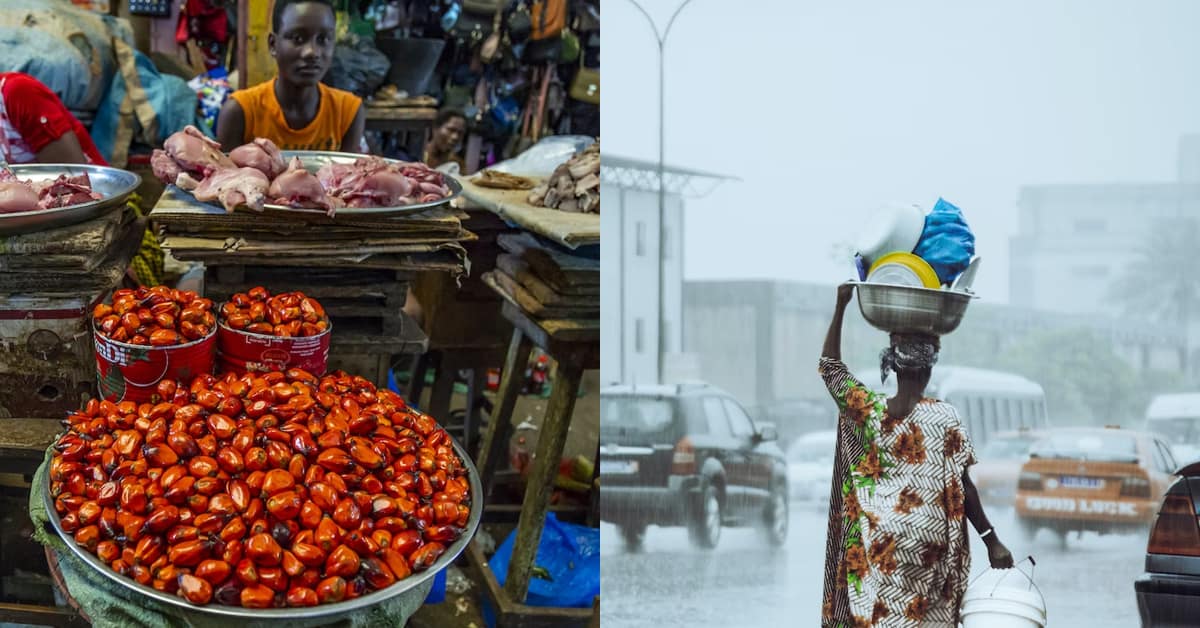Ivorian cuisine is a reflection of the country’s diverse cultural heritage, with influences from French, African, and Arabic cuisines. Ivory Coast, also known as Côte d’Ivoire, is located in West Africa and is known for its rich and flavorful dishes.
The country’s cuisine is characterized by fresh ingredients, bold spices, and a variety of meats and vegetables. Ivorian food is a celebration of the country’s history and traditions, and it is a must-try for anyone looking to explore the flavors of West Africa.
Is Ivorian food halal?
Ivorian food is not necessarily halal as it may contain non-halal ingredients such as pork or alcohol.
However, there are many Ivorian dishes that are made with halal ingredients such as chicken, beef, and fish.
It is important to check the ingredients and preparation methods of each dish to determine if it is halal or not.
What kind of food do Ivorian eat?
Ivorian cuisine is diverse and influenced by various cultures, including French, African, and Arabic. Some popular Ivorian dishes include:
- Attiéké: A side dish made from cassava that is grated, fermented, and steamed.
- Fufu: A starchy side dish made from cassava, yam, or plantains that is mashed and formed into balls.
- Grilled fish: Fresh fish grilled over an open flame and served with a spicy sauce.
- Kedjenou: A stew made with chicken or guinea fowl, vegetables, and spices.
- Pounded yam: A starchy side dish made from yam that is boiled and pounded until smooth.
- Sauce graine: A sauce made from ground palm nuts, vegetables, and spices.
- Alloco: Fried plantains served as a snack or side dish.
- Poulet braisé: Grilled chicken marinated in spices and served with a spicy sauce.
- Garba: A snack made from ground peanuts, sugar, and spices.
- Bangui: A drink made from fermented millet or sorghum.
How can you tell if the food is halal in Ivory Coast?
In Ivory Coast, halal food is generally available in Muslim-majority areas and restaurants. You can look for halal certification from recognized Islamic organizations or ask the restaurant staff if the food is halal.
You can also look for the halal logo on food packaging in supermarkets and grocery stores.
It is important to note that not all restaurants and food products are halal certified, so it is always best to confirm before consuming.
Is it hard to find halal food in Ivory Coast?
It may be challenging to find halal food in Ivory Coast, especially outside of major cities.
However, some restaurants and markets in Abidjan and other urban areas may offer halal options.
Ask locals or research beforehand to find halal food options is recommended.
Is Ivorian food healthy?
Ivorian cuisine is generally considered healthy as it is based on fresh and natural ingredients such as vegetables, fruits, grains, and lean meats.
Traditional Ivorian dishes are often prepared with minimal oil and are rich in fiber, vitamins, and minerals. However, some dishes may be high in calories and fat due to the use of palm oil and coconut milk.
It is important to consume Ivorian food in moderation and balance it with a healthy lifestyle.
What is Ivorian food similar to?
Ivorian food is similar to other West African cuisines, such as Ghanaian, Senegalese, and Nigerian cuisine. It often features starchy staples like cassava, yams, and plantains, as well as a variety of meats and seafood.
Spices and herbs like ginger, garlic, and chili peppers are commonly used to add flavor to dishes.
Some popular Ivorian dishes include attiéké (fermented cassava couscous), kedjenou (chicken stew), and aloco (fried plantains).
How to find halal food in Ivory Coast?
Here are some general steps on how to find halal food in Ivory Coast:
1. Research halal food options in Ivory Coast: Start by researching the halal food options available in Ivory Coast. You can use online resources such as halal food directories, blogs, and forums to find out about halal restaurants, grocery stores, and markets in the country.
2. Ask locals: Ask locals for recommendations on where to find halal food. You can ask your hotel staff, taxi drivers, or people you meet during your travels.
3. Check food labels: When shopping for food, check the labels to ensure that the products are halal certified. Look for the halal logo or certification from a recognized halal certification body.
4. Visit halal restaurants: Visit halal restaurants in Ivory Coast to enjoy halal food. You can use online resources to find halal restaurants in the country.
5. Use halal food apps: Use halal food apps to find halal food options in Ivory Coast. These apps provide information on halal restaurants, grocery stores, and markets in the country.
6. Attend halal food events: Attend halal food events in Ivory Coast to discover new halal food options and meet other halal food enthusiasts.
7. Ask for recommendations: Ask for recommendations from other halal food enthusiasts in Ivory Coast. You can join online halal food communities or forums to connect with other like-minded individuals.

